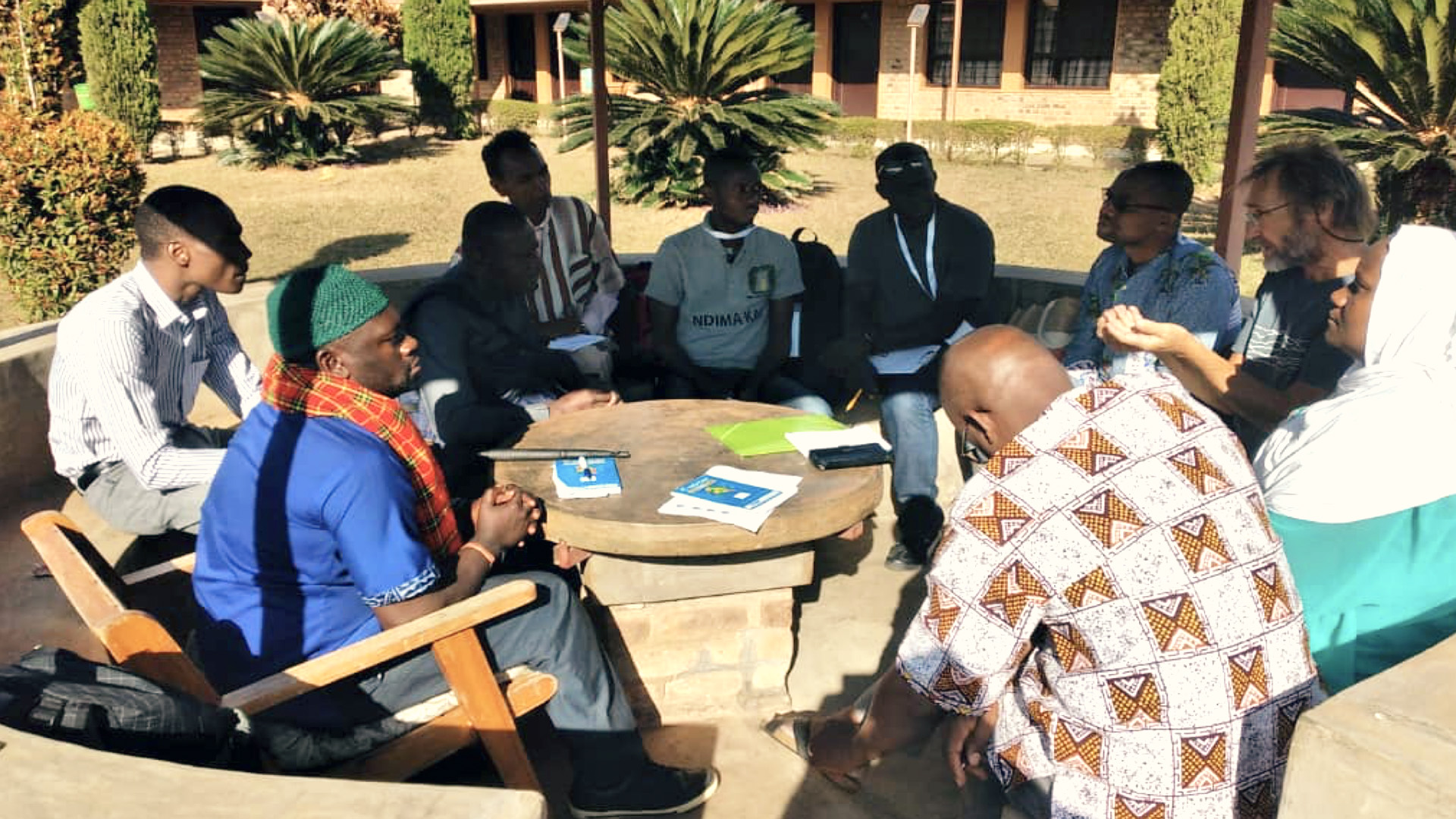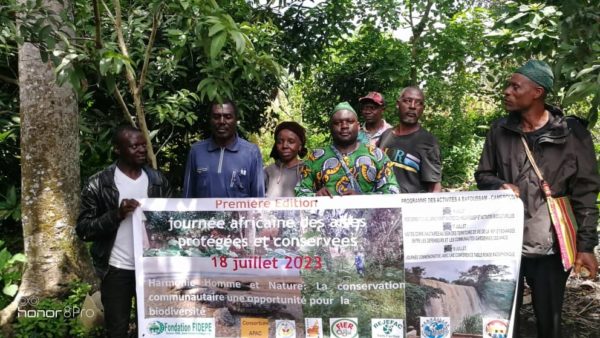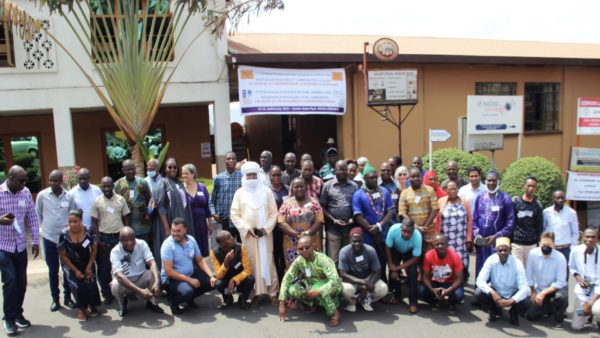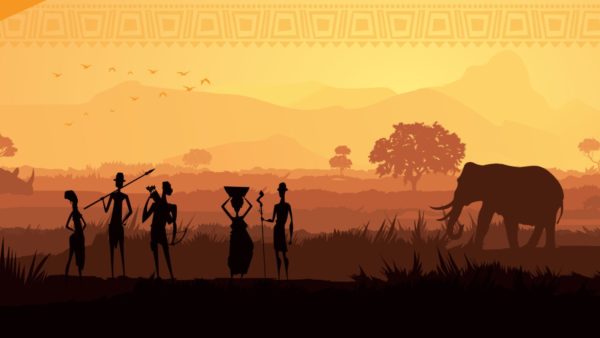In July 2022, the ICCA Consortium was present at the first African Protected and Conserved Areas Congress (APAC-Congress), organised in Kigali under the aegis of the IUCN. Indigenous Peoples and local communities made their voices heard, calling for conservation to be inclusive and community-led across the continent
First published on 01/29/2024, and last updated on 07/04/2025
By the ICCA Consortium
Translated from French by Graden Froese
The first African Protected Areas Congress (or APAC – not to be confused with the same acronym in French, APAC, for ICCAs-territories of life) was held from 18 to 23 July 2022 in Kigali, Rwanda. Organised by the IUCN, this was the first congress of its kind to be held for African governments and civil society. The aim of the meeting was to work towards harmonising nature conservation and human ways of life on the continent, in particular by discussing the role of protected areas in conserving Africa’s nature and cultural heritage.
A rich Congress fuelled by the active and prepared participation of Indigenous Peoples and local communities
Over six days, the APAC Congress brought together more than 2,400 participants, including African leaders, government bodies and civil society representatives from 80 countries, including 53 African countries.
At the opening plenary session, Milka Chepkorir gave a resounding speech decrying the historical injustices committed against Indigenous Peoples and local communities in the name of conservation (you can watch and read the full speech here). Indigenous Peoples and local communities, including members of the ICCA Consortium, actively participated in more than twenty sessions of the Congress dealing with crucial issues including: tenure, the “30×30”, community conservation, traditional culture, Other effective area-based conservation measures (OECMs), human rights in conservation, the inclusion of Indigenous Peoples and local communities in the identification and management of protected areas, and fair and inclusive conservation. A session on the legal recognition of collective lands and territories of life was also organised by the ICCA Consortium and highlighted examples of positive efforts to move towards legal and political pluralism.
More generally, the Congress’ rich programme was divided into three main areas for reflection: 1) the promotion of networks of protected and conserved areas; 2) the balance between populations and protected and conserved areas for mutual well-being; and 3) biodiversity as the foundation of life. For each of these areas of reflection, cross-cutting themes fed into the discussions: governance, conflicts of use, resilience in the face of climate change, science, technology and Indigenous knowledge, finance and sustainability, and the impact of infrastructure. The ultimate aim of the Congress was to shape Africa’s agenda for protected and conserved areas, in the common interest of both people and nature conservation.
Representatives of Indigenous Peoples and local communities took an active, united and relevant part in this meeting, and some had benefited from preparation for this important event during the pre-Congress, organised upstream by IMPACT Trust Kenya and the APAC Consortium following the second Regional Assembly of African ICCAs-territories of life.
The Congress culminated in the production of two important documents: a closing memorandum from Indigenous Peoples and local communities and a call to action for people and nature.
We are Nature
The memorandum bears an evocative title: “We are Nature”. Read during the closing ceremony of the Congress, it summarises the situation of Indigenous Peoples and local communities in Africa: after thanking those who listen to their ideas and claims, the text shows the imbalance between, on the one hand, traditional conservation and its stakeholders and, on the other, community conservation. Indigenous peoples and local communities then set out their commitments, particularly with regard to sharing their knowledge and practices for the respect and sustainable use of nature. The document’s three key messages are:
- Dialogue has begun; it must continue.
- Empowerment must replace participation.
- The decolonisation of conservation begins with governments becoming aware of the conservation capacities of Indigenous Peoples and local communities.
In addition to these messages, governments, donors, conservation organisations, academic institutions and the media are called upon to take a wide range of actions relating to the recognition of and respect for the competences, human rights and governance of Indigenous Peoples and local communities on their collective lands and territories.
You can read the full memorandum here: Kigali Declaration – We are Nature
Call to action for people and nature
Participants at the Congress called for a series of actions under the theme “for people and nature”. These actions aim to strengthen African protected and conserved areas in a just and equitable way, making the participation of Indigenous Peoples and local communities inviolable. The appeal culminates in four main lines of action:
- The identification, recognition and strengthening of the capacities of all the custodians of nature in Africa to lead the way in the conservation of Africa’s biodiversity. To achieve this, areas must be protected and conserved in a just, equitable, partnership-based and networked way. Other effective area-based conservation measures (OECMs), for example, are one way to create space for other modes of governance in conservation.
- Recognition of past and present injustices suffered by Indigenous Peoples and local communities whose rights, roles, responsibilities and expectations have been trampled in the pursuit of conservation objectives. To this end, mechanisms for dialogue and redress of grievances must be established and made accessible to Indigenous Peoples and local communities.
- Increased public and private investment in nature conservation and protected and conserved areas, taking into account human needs as well as ecosystem services. To achieve this, funding must be channelled through just, equitable and effective mechanisms to enable direct support to Indigenous Peoples and local communities, and strive to achieve social outcomes from conservation efforts.
- An integrated approach between all stakeholders to address the link between climate, biodiversity, health and conflict. This requires greater collaboration, cooperation and partnership at the pan-African level, involving all levels of governance as well as marginalised people, in a drive for unity, self-determination, freedom, progress and collective prosperity. This approach must be in line with the African Union’s Agenda 2063.
These four lines of action are then broken down into various requests to governments and conservation organisations. Of the commitments made at the APAC Congress, the wish was expressed to declare 18 July each year as “African protected and conserved areas day”, to celebrate the rich and unique heritage of African biodiversity and the diversity of the Peoples who enjoy it. Congress participants also pledged to welcome the recommendations made by Indigenous Peoples and local communities, and to organise an annual African Forum on protected and conserved areas as an inclusive and consultative pan-African body.
You can read the full text of the Kigali Call to Action for People and Nature here.
African Peoples, the true leaders of conservation in Africa
This Pan-African Congress on Protected and Conserved Areas, the first of its kind, can thus be crowned a great success. It permitted the active participation of the many stakeholders involved in conservation in Africa. The stakes are as enormous as the continent itself, but the African peoples energy and determination are showing up to guarantee the future of Africa’s biodiversity and landscapes.
Don’t hesitate to check out the other articles linked to the Kigali events on our dedicated page: 2022 AFRICAN REGIONAL ASSEMBLY & IUCN PROTECTED AREAS CONGRESS.



